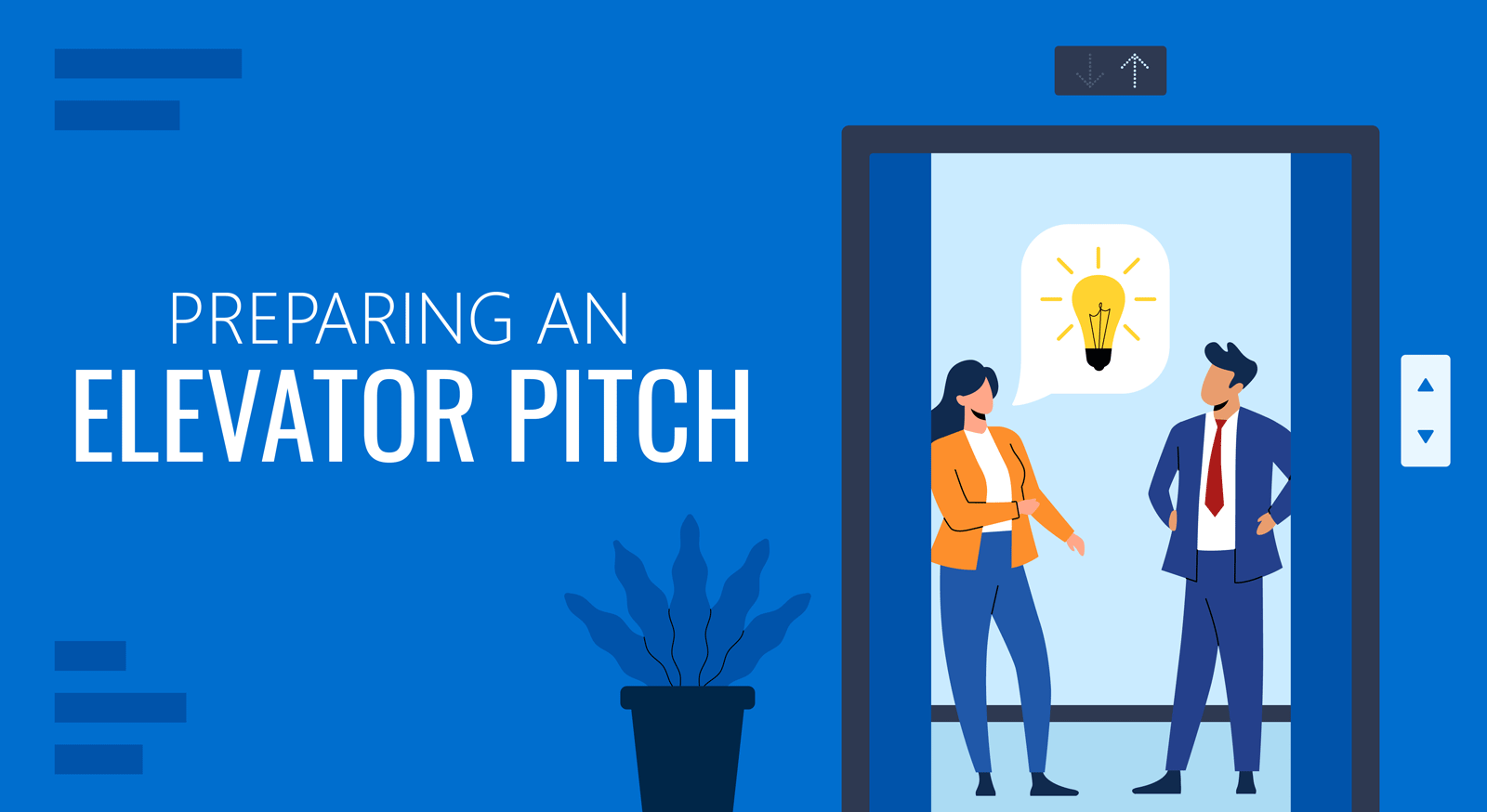
Master Your Elevator Pitch
Elevator Pitch? WHAT?
Picture this: You're in an elevator with your dream client, ideal employer, or potential investor. The doors close, and you have exactly 30 seconds before they reach their floor. What do you say? How do you capture their attention and make them want to know more about you or your business?
This moment–terrifying as it might seem–is where your elevator pitch becomes your secret weapon. Whether you're a professional seeking career coaching, an entrepreneur building your business, or someone navigating a career transition, mastering your elevator pitch is essential for success.
What Exactly Is an Elevator Pitch?
An elevator pitch is a concise, compelling introduction that communicates your value in 30-60 seconds. Think of it as your professional highlight reel – short enough to deliver during a brief elevator ride, but powerful enough to open doors to new opportunities.
Elevator pitches aren't just for elevators, though. You'll use variations of your pitch in:
Networking events and conferences
Job interviews and career fairs
Business meetings and sales calls
Social media profiles and website copy
Email signatures and LinkedIn summaries
As a career coach, I've seen countless professionals struggle with this fundamental skill. The good news? Anyone can learn to craft and deliver an effective elevator pitch with the right framework and practice.

The Four Pillars of an Effective Elevator Pitch
1. Keep It Short and Sweet
Your elevator pitch should be 30-45 seconds when spoken aloud, which translates to roughly 75-100 words in writing. This isn't the time for your life story – it's a teaser that makes people want to learn more.
2. Make It Interesting
Capture attention immediately. Use storytelling, compelling data, or thought-provoking questions. Avoid generic openers like "I'm a marketing professional who helps companies grow." Instead, try something memorable that stops people in their tracks.
3. Personalize for Your Audience
Just like effective business coaching requires understanding your client's unique needs, your elevator pitch should be tailored to your listener. The version you use at a career fair will differ from what you share at an industry conference.
4. Project Confidence
Deliver your pitch with conviction. Practice until it feels natural and conversational. Remember, if you don't believe in your value, why should anyone else?

The 5-Step Elevator Pitch Framework
Step 1: Establish the Problem (With a Hook)
Start by identifying a pain point your audience faces. Make it relatable and immediate. Try these attention-grabbing openers:
"You know that feeling when..."
"Have you ever noticed..."
"Picture this scenario..."
"Let's be honest..."
Example: "You know how most small business owners spend more time working IN their business than ON their business?"
Step 2: Introduce Your Solution
Position yourself or your business as the hero of the story. Be specific about HOW you solve the problem. Mention what type of solution you provide – are you a consultant, a platform, an agency?
Example: "I'm a business coach who helps entrepreneurs systematize their operations so they can focus on strategic growth instead of daily firefighting."
Step 3: Share the Benefit
Explain WHY solving this problem matters. What transformation do you provide? What's the end result for your clients or employers?
Example: "This means business owners can finally take vacations without their phone ringing every five minutes, and they see 30-40% revenue growth within the first year."
Step 4: Differentiate Yourself
What makes you unique? Include social proof, credentials, or your special approach that sets you apart from competitors.
Example: "Unlike other business coaches who use generic templates, I've personally scaled three companies from startup to seven figures, so I know exactly which strategies work in real-world scenarios."
Step 5: Close with a Call to Action
End with a specific next step. What do you want them to do? Make it easy and low-pressure.
Example: "I'd love to hear about your business challenges. Do you have 15 minutes next week for a quick coffee chat?"
Three Powerful Elevator Pitch Templates
Template 1: The Problem-Solution Approach
"When I first started [your field], I discovered a common challenge: [specific problem]. For [time period], I've been [how you solve it]. I also [unique differentiator]. With this approach, my clients not only [benefit 1], but they also [benefit 2]. [Call to action]."
Template 2: The Transformation Template
"Between [pain point] and [pain point], [achieving goal] can feel overwhelming. I help [target audience] [achieve specific outcome] through [your method]. Not only [differentiator 1], but [differentiator 2], so you can [ultimate benefit]. Over [number] clients have [achieved result] with my help. [Call to action]."
Template 3: The Data-Driven Pitch
"[Industry/situation] is a significant challenge. In fact, [compelling statistic]. [Your business/service] has helped over [number] [target clients] [solve this problem] and [achieve benefit]. By [unique feature], [proof of value]. [Call to action or thought-provoking question]."
Common Elevator Pitch Mistakes to Avoid
Being Too Generic: "I help companies grow" tells me nothing. Be specific about who you help and how.
Feature Dumping: Don't list every service you offer. Focus on the most compelling benefit for your audience.
Lacking Confidence: Practice until you can deliver your pitch naturally, without sounding rehearsed or nervous.
Forgetting the CTA: Always end with a clear next step. Make it easy for interested people to continue the conversation.
One-Size-Fits-All: Customize your pitch for different audiences and situations.
Practice Makes Perfect: Your Next Steps
Write Multiple Versions: Create 3-4 variations for different situations and audiences
Practice Daily: Rehearse in front of a mirror, record yourself, or practice with friends
Get Feedback: Ask trusted colleagues or a career coach to listen and provide input
Test and Refine: Pay attention to how people respond and adjust accordingly
Stay Current: Update your pitch as your career evolves and your goals change
The Bottom Line
Your elevator pitch is one of the most valuable tools in your professional toolkit. Whether you're seeking career advancement, building a business, or navigating a career transition, a well-crafted pitch opens doors to opportunities you might never have imagined.
Remember, the goal isn't to close a deal in 30 seconds – it's to start a conversation that could change your career trajectory. With the right framework, consistent practice, and authentic delivery, your elevator pitch becomes a powerful catalyst for professional growth.
As a career coach, I've seen firsthand how a compelling elevator pitch can transform someone's networking success and career prospects. If you're struggling to articulate your value or want to refine your pitch, professional coaching can provide the personalized guidance and practice you need to truly shine.
Ready to craft an elevator pitch that opens doors? The framework is here – now it's time to put it into action.
Need help developing your elevator pitch or navigating your career journey? CoreTactic's experienced career coaches provide personalized guidance to help you articulate your value and achieve your professional goals. Schedule a consultation to get started.








